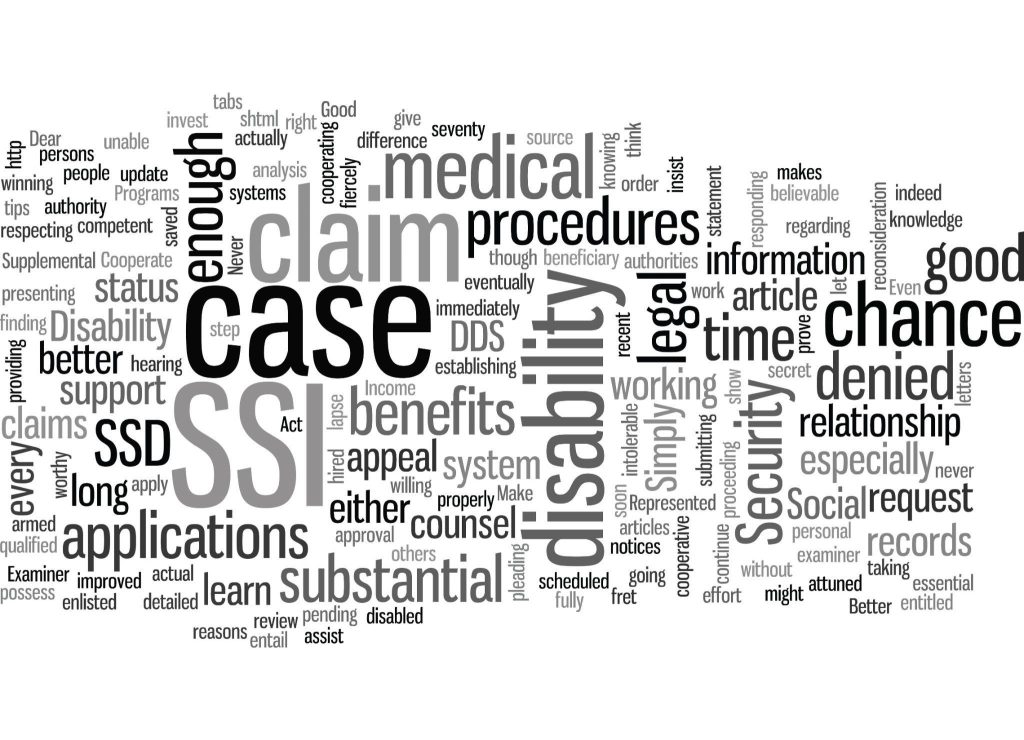Table of Contents
If you’ve ever had trouble with social security, SSI, or disability payments, you might want to seek an attorney. While the thought of legal services usually puts people off because of cost, getting a lawyer can actually be free.
Why Do I Need a Lawyer?
Getting a legal representative can be a huge advantage simply because they understand how the system works. A legal representative can act on your behalf to take care of the paperwork, research, and any other legal responsibilities. Lawyers can attend conferences, hearings, or interviews with you, providing legal advice and navigating tricky waters. Many of them specialize in a certain practice, such as employment law or family law, to ensure you get the legal help you need. Social security disability attorneys can help you obtain the medical records you need for your claim. They can request hearings, reconsiderations, and appeals, and prepare you and your witnesses for questioning.
How Can I Obtain Legal Aid?
Many law offices are willing to work with you. The Social Security Administrative Office can provide a list of qualified representatives to choose from, or you may find your own legal services. While one or more representatives can be appointed to your case, an entire legal firm or corporation cannot. Once you obtain representation, you must inform the Social Security Administration with a standard form, Claimant’s Appointment of a Representative (SSA-1696).
Is Obtaining a Lawyer Free?
There are no out-of-pocket expenses for a social security disability lawyer, which means you can have a lawyer represent you for free. With these cases, lawyers typically don’t get paid unless you do. If your case is approved and you receive a back-pay amount, then the lawyers will receive 25% of your back pay, or $6,000, whichever is less. This way, their fee comes out of the money you would receive, and you won’t have to pay them yourself. A lawyer cannot charge a fee higher than the court allows for services.
What is Backpay?
Backpay is the benefits accrue while waiting for your case to be approved. The benefits will start either on the day you filed the claim, whether you’re applying for SSDI or SSI, or on the onset of your disability.
Can Lawyers Charge More?
While it is possible, there are very few instances when this happens. This can happen if your lawyer needs to appeal your case at a federal level or if you fire one attorney and hire another. To charge a higher fee, your lawyer must submit a “fee petition,” which must be approved by Social Security before they can charge you.
What is a Fee Petition?
A fee petition is when your attorney contacts Social Security requesting to charge you more than the 25% of backpay, or the $6,000. The petition must contain a list of the attorney’s activities on the case, and Social Security must deem these charges as reasonable. Social Security will judge the attorney’s involvement in the case, the complexity of the case, and their experience. If you disagree with the petition, you may object to it formally.
Expenses related to your case
The 25% of backpay cap does not cover any out-of-pocket expenses an attorney may accrue while working your claim. When hiring your attorney, they will ask you to sign an expense agreement, which requires you to pay for their expenses regardless of whether your case is approved. These charges can be for traveling, long-distance phone calls, obtaining medical records, postage, or interviews with medical professionals.
What if Your Claim is Denied?
If your claim is denied, you can choose to appeal the decision or reopen the previous claim.
Appealing: If you wish to appeal your case, you and your disability attorney will request a reconsideration. If that is denied, you can request a hearing within 60 days of your request being denied. If your claim is still denied, you can appeal to the Appeals Counsel within 60 days of being denied. The Appeals Counsel can decide whether or not they will review your claim.
Reopening the Previous Claim: If you decide not to appeal or miss the appeal deadline, the SSA will close your case. However, you can file a new claim related to the old one, which will reopen your previously denied claim and could qualify you for combined SSDI benefits for both claims. For example, if you are injured, the injury in the new claim must be related to the injury in the old claim. If your previous claim is reopened and you are approved, you can receive backpay from the time you filed your first claim.




